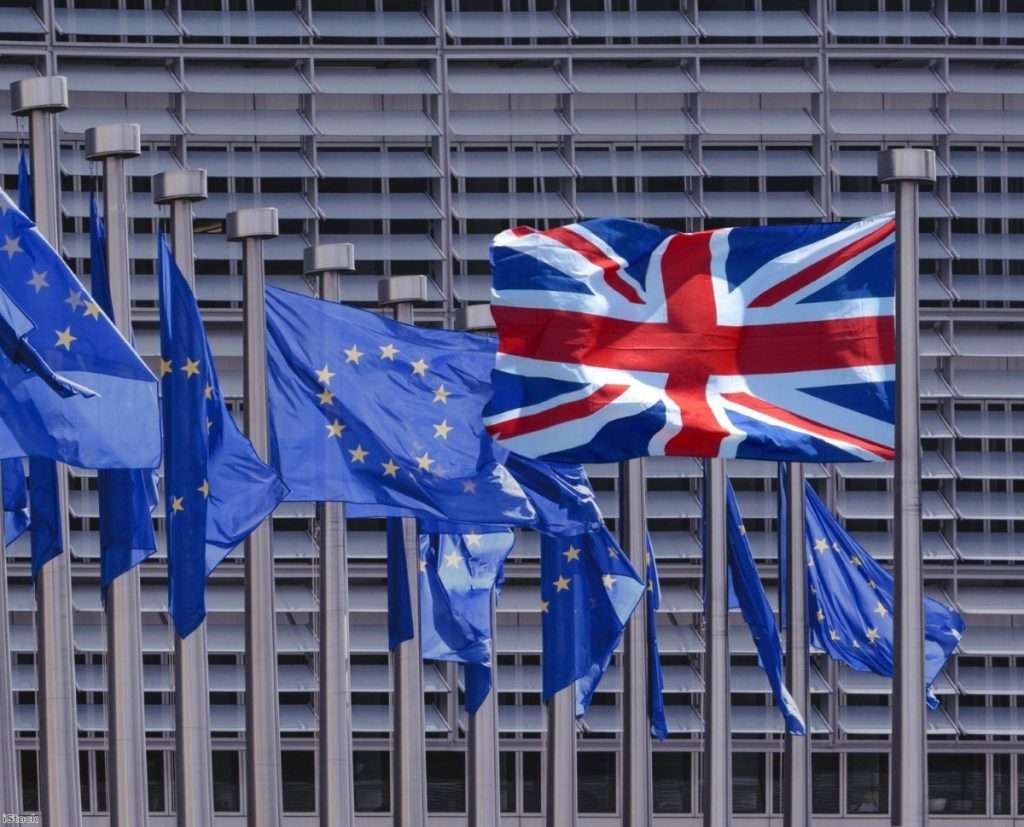By Peter McLeod
One of the consequences of Britain lacking a functioning opposition is that politics within the Conservative Party have outsized influence. This is surely the best explanation for the fact that, as Theresa May takes one last deep breath before triggering Article 50, the country is in real danger of a disastrously hard Brexit.
People don't want this: GQRR polling published today shows that despite the referendum result Britain clearly prefers a Brexit deal that keeps us in the single market even with continued free movement of people. But the Conservatives' electoral incentives could well land us outside the single market all the same.
With Labour effectively mute, the Liberal Democrats diminished and Ukip still frighteningly appealing, we lack clear strong voices in favour of economic pragmatism. It may fall to those outside politics to take up the fight. We have found several things they can say that would make a difference.



The struggle provoking this predicament has been going on in the background for decades: Conservatives are split on Europe. David Cameron tried to resolve it by holding the Brexit referendum, and in the wake of that failure Theresa May faces a new version of the dilemma.
Unlike the country as a whole, Conservative voters are evenly split on what would be the better Brexit. Soft Brexit would leave 48% of them happy, 42% unhappy; hard Brexit would leave 48% happy, 41% unhappy. So May is bound to leave a significant chunk of Conservative voters feeling betrayed. The challenge for her and her team is to assess the risk each scenario poses at the next general election. Our poll suggests it's a knife-edge decision: Tory voters who would be unhappy with a soft Brexit are about as likely to turn to Ukip as those who would be unhappy with hard Brexit are to jump ship to Labour or the Lib Dems.
What could tip the balance is that May herself is an immigration sceptic: as home secretary she was said to be the only member of David Cameron's cabinet who agreed with him on cutting net immigration to less than 100,000 a year. She got her job because her predecessor failed to convince voters to accept high immigration in exchange for prosperity. She has said that free movement will end.

What can anyone do about this? If, for example, you're a business that benefits from Britain's single market access, should you get involved in the debate and what should you say? The first thing you need to know is that the public is open to business making its case. By 52% to 31%, the public agrees that "everybody with an interest in the outcome of Brexit has a right to tell the government what sort of deal would work best for them, including big companies." They reject the idea that "the negotiations over Brexit are a matter for government; companies should stay out of it."
Second, Britain is far more pro-trade and internationalist than its vote to leave the world's biggest free-trade area suggests. By 50% to 17%, people agree with the statement "Overall, foreign trade makes things better for British workers" over the statement "Overall, foreign trade makes things worse for British workers." Even Leave voters are pro trade (45% to 24%).
Further, British people agree 51% to 31% with the statement "Britain's national interest depends on us working closely with other countries and playing a full part in the wider world" over "Britain's national interest would be best served if we worried less about our role in the world and what other countries think or want." This is a country that wants trade and international cooperation.

Third, don't ignore immigration. During the referendum campaign, Remainers rarely engaged on immigration, preferring to stick to economic arguments they knew they could win. This was a mistake. Leave covered the map: they attacked immigration hard, but also made assiduous efforts to undermine the Remain case on the economy. They didn't win on economics but they created enough doubts about Remain's case for their immigration arguments to carry the day.
In the same way, pro-EU campaigners shouldn't expect to convince the nation that immigration is a net benefit, but they should put doubt in people's minds about prioritising cutting immigration over every other concern. There are some excellent ways to do this: by 41% to 22%, British people think that immigration has a positive impact on the economy; by 53% to 17%, they agree that immigrants work hard and make a contribution to Britain; and by 62% to 15%, they think that under a well-managed system, immigration can be good for Britain. These are the kinds of arguments that will moderate voters' enthusiasm for a low-immigration future.
Finally, despite the gloom that many feel about Brexit, we need to recognise that most don't share it: 50% of the country feels "very" or "mostly hopeful" about how Brexit will turn out, compared to 41% who are worried. Even 23% of Remain voters feel more hopeful than worried.
Especially for businesses wanting to nudge the debate toward a deal that isn't catastrophic, it would be politic to put on a brave face despite the many (legitimate) concerns.
Peter McLeod is vice president of polling firm GQRR. GQRR surveyed 1,994 people in Great Britain online between 8 and 10 March. Results are weighted to be representative of the total population by age, gender, region, socioeconomic grade, ethnicity and past voting behaviour. Data tables showing the results are available here.
The opinions in politics.co.uk's Comment and Analysis section are those of the author and are no reflection of the views of the website or its owners.












